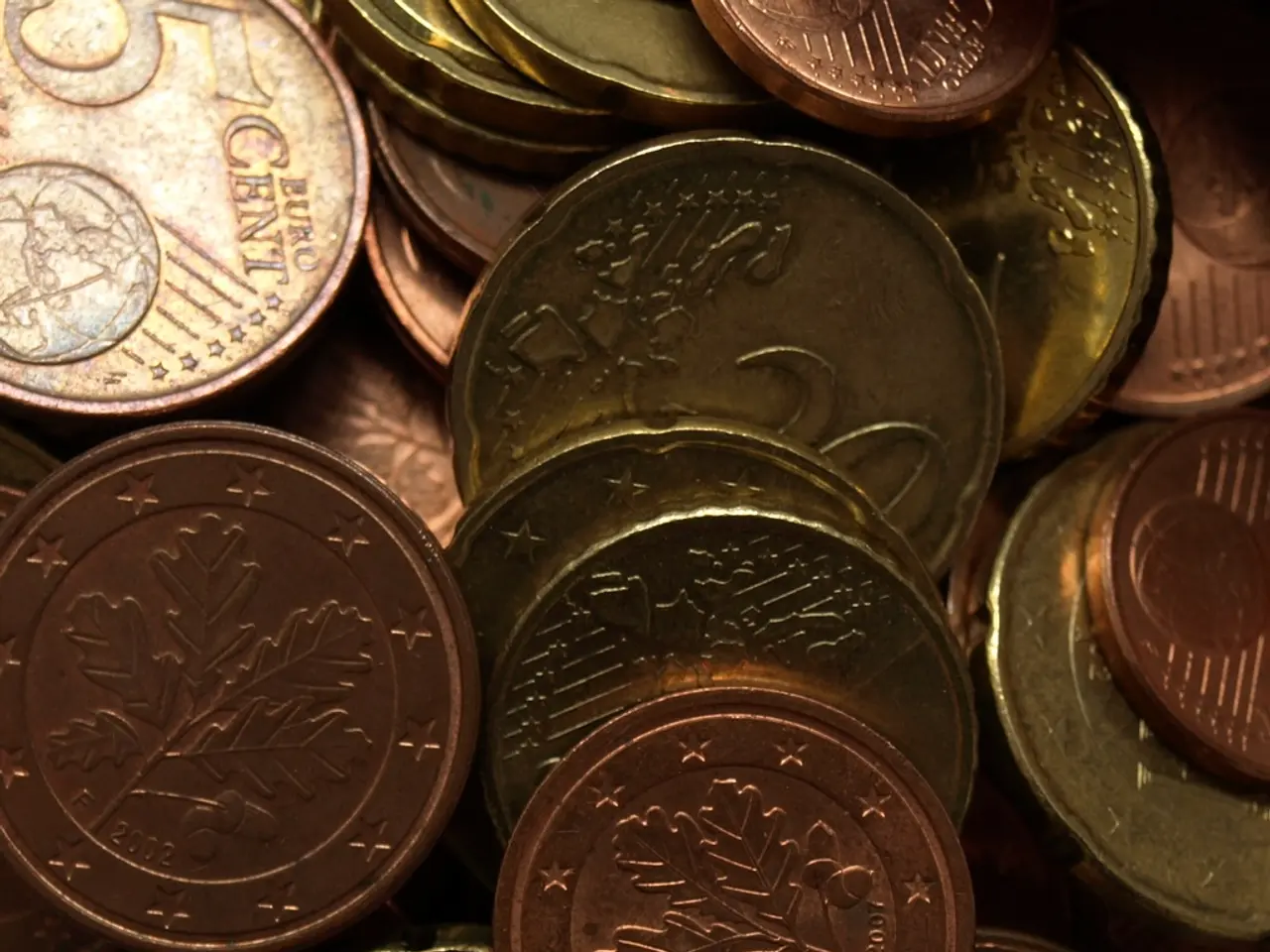Central Bank of Korea seeks control over stablecoin operations; Tether accessible to Korean residents
South Korea Takes a Leap in Stablecoin Regulation
South Korea is making significant strides in the world of digital currency with the introduction of a comprehensive stablecoin bill. The aim is to establish a domestic, won-backed stablecoin system that can compete on a global scale, while ensuring strict regulatory provisions to protect users and the financial system [1].
Under this new framework, the Bank of Korea (BOK) is set to play a crucial supervisory and regulatory role. The central bank will have the authority to request joint inspections with the Financial Services Commission (FSC), submit data requests to the FSC, and issue emergency orders when necessary to support monetary policy objectives [1]. This proactive approach by the central bank underscores its commitment to oversee won stablecoin issuers and safeguard monetary stability.
The proposed legislation requires stablecoins to be fully backed by high-liquidity assets like cash, demand deposits, and government bonds. It also forbids paying interest on stablecoin holdings to prevent them from functioning as shadow deposits, and guarantees redemption within three business days with protected reserve assets dedicated solely to this purpose [1].
The Financial Services Commission is also advancing a regulatory framework that integrates stablecoins, including measures on anti-money laundering (AML) and counter-terrorism financing (CFT), emphasizing stablecoins' use for payments and cross-border transfers [3][5]. This regulatory push is part of President Lee Jae-myung’s economic strategy and has been developed through extensive consultations with policymakers and experts [1].
Notably, major private players like KakaoBank plan to launch KRW-backed stablecoins by 2025, aligning with these evolving policies. They aim to leverage their experience from CBDC pilot projects and crypto exchange partnerships to implement robust risk management protocols [2].
The merger of Klaytn and Finschia, two prominent blockchain networks from South Korea and Japan respectively, has brought a potential audience of almost 250 million users [4]. Tether, the largest stablecoin issuer, has partnered with the Kaia Foundation, the entity overseeing the new blockchain, to natively issue its digital currency on the Kaia blockchain [4]. Last month, a consortium of Korea's largest banks also announced plans to issue a Won stablecoin [6].
However, the role of the Federal Reserve in stablecoin legislation is a contentious issue, with Republican legislators seeking to give other banking regulators more of a say [7]. The Governor of the Bank of Korea, Rhee Chang-yong, has emphasized the need for urgent regulation for stablecoins like USDT (Tether) and has suggested reviewing whether to allow Won-based stablecoins from the beginning [8].
Last week, the GENIUS Act stablecoin legislation failed its first vote in the United States, indicating a challenging road ahead for global stablecoin regulation [9]. Despite this setback, South Korea seems determined to move forward with its own regulatory framework for stablecoins.
References: [1] https://www.coindesk.com/policy/2022/03/10/south-korea-unveils-stablecoin-bill-to-establish-domestic-cryptocurrency-market/ [2] https://www.coindesk.com/business/2022/03/23/south-korea-kakao-bank-plans-to-launch-stablecoin-by-2025-report/ [3] https://www.coindesk.com/policy/2022/03/23/south-korea-is-working-on-stablecoin-regulation-amid-global-uncertainty/ [4] https://www.coindesk.com/business/2022/04/07/tether-to-issue-usdt-on-kaia-blockchain-formed-by-merger-of-klaytn-and-finschia/ [5] https://www.coindesk.com/policy/2022/03/18/south-korea-plans-to-tighten-crypto-exchange-regulations-and-ban-anonymous-accounts/ [6] https://www.coindesk.com/business/2022/04/06/south-korean-banks-to-launch-stablecoin-to-compete-with-tether/ [7] https://www.coindesk.com/policy/2022/03/23/republicans-seek-to-give-other-banking-regulators-more-of-a-say-in-stablecoin-legislation/ [8] https://www.coindesk.com/policy/2022/03/23/south-korea-is-working-on-stablecoin-regulation-amid-global-uncertainty/ [9] https://www.coindesk.com/policy/2022/04/08/stablecoin-legislation-fails-first-vote-in-us-congress/
- The new framework in South Korea's banking industry involves stringent regulations for stablecoins, with the Bank of Korea (BOK) playing a significant role in supervision and oversight.
- The proposed stablecoin legislation in South Korea requires these digital currencies to be backed by high-liquidity assets, forbids interest on stablecoin holdings, and guarantees redemption within three business days.
- The Financial Services Commission is advancing a regulatory framework that integrates stablecoins, including measures on anti-money laundering (AML) and counter-terrorism financing (CFT), in the payments and cross-border transfer sectors.
- Noteworthy industries in South Korea, such as KakaoBank, plan to launch won-backed stablecoins by 2025, capitalizing on their experience from CBDC pilot projects and crypto exchange partnerships.
- Despite the recent failure of the GENIUS Act stablecoin legislation in the United States, South Korea continues to push forward with its own regulatory framework for stablecoins, working towards maintaining a robust and competitive finance technology (fintech) industry.




